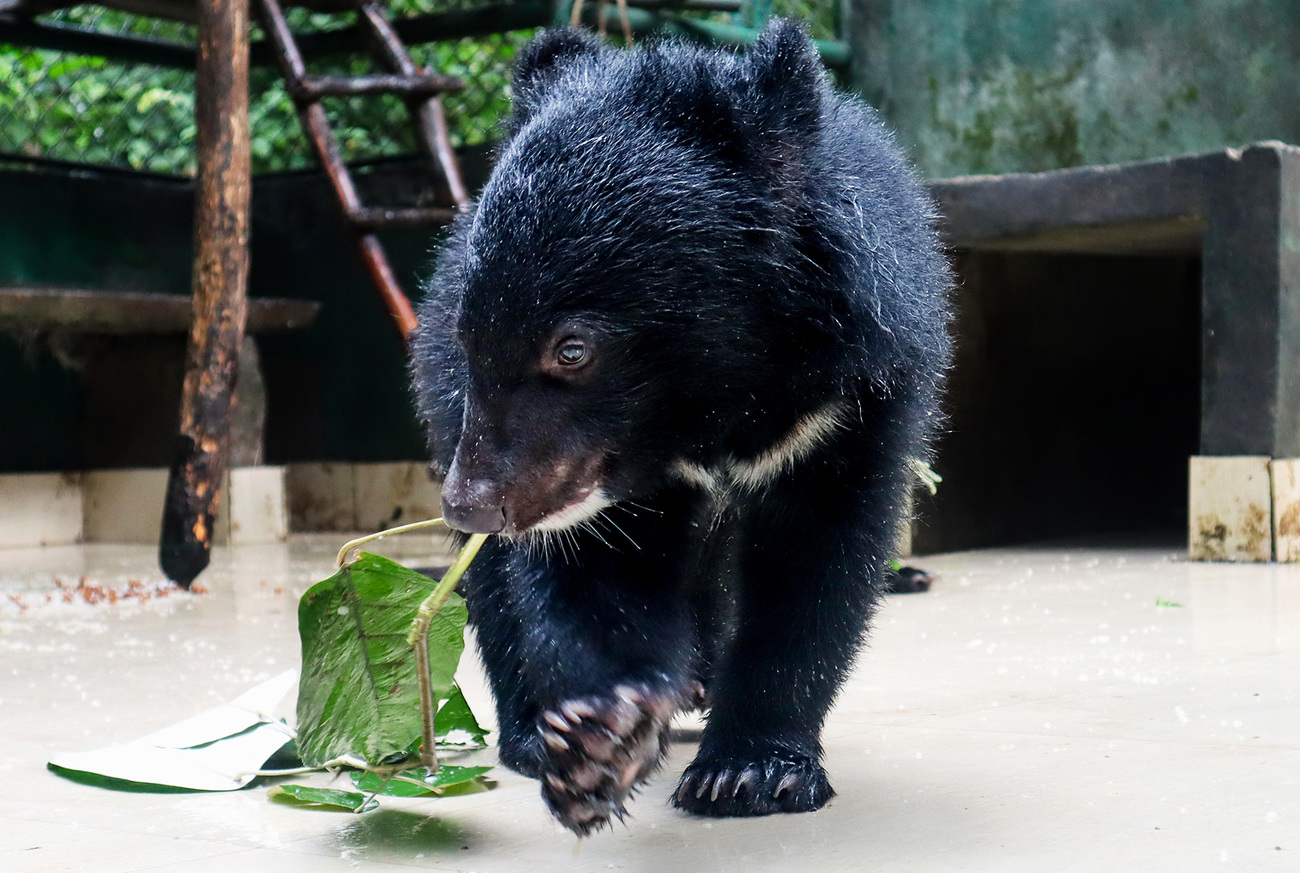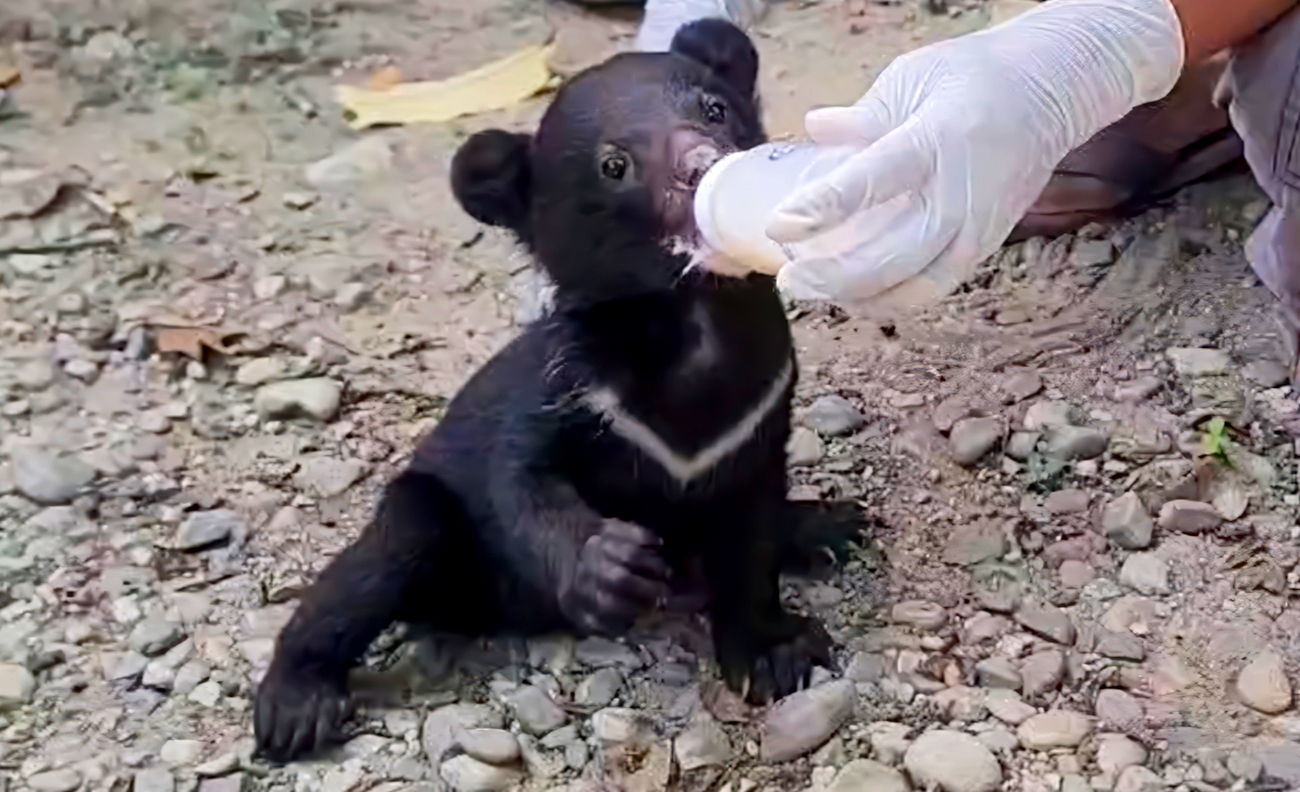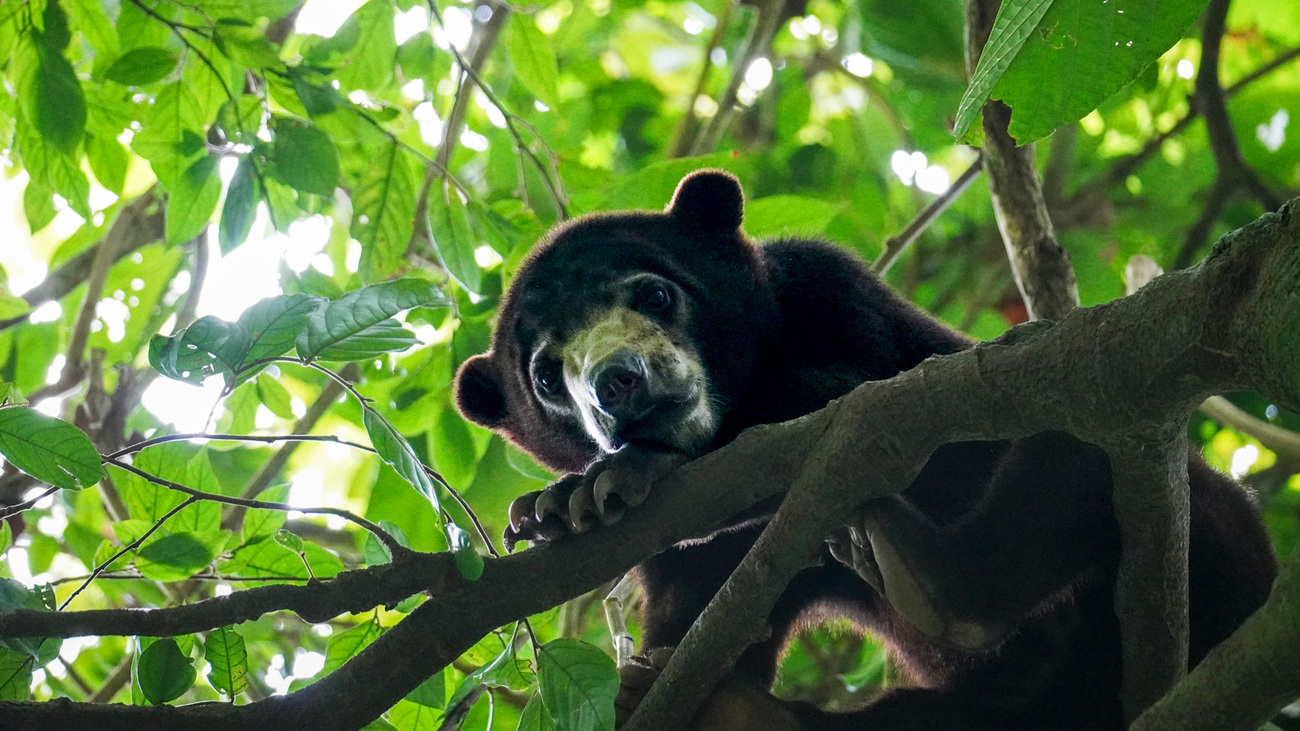Blog
Can animals predict earthquakes and other disasters?
Read moreRescued cubs learn bear necessities from human foster carers
Last month, a villager living near a forest reserve in Assam, India, found, in their own backyard, two tiny bear cubs. They immediately contacted the forest department, saving the cubs’ lives.
Asiatic black bear cubs usually drink their mother’s milk until they’re around four months old but stay with their mothers for the first two years of their lives. Sadly, these two rescued cubs appeared to be younger than two months old, so they had no chance of surviving on their own.

The forest department searched for their mother, but she was nowhere to be found. Officials concluded that she—and, by extension, her vulnerable cubs—was a victim of poaching.
Fortunately for the cubs, forestry officials transferred them to the IFAW–WTI Centre for Wildlife Rehabilitation and Conservation. A joint effort between IFAW and the Wildlife Trust of India (WTI) in collaboration with Assam Forest Department, the centre is the only facility in the country that rescues, hand-raises, and rehabilitates animals such as the one-horned rhinoceros and Asian elephant—and now, since February, two baby black bears.
These cubs are survivors of wildlife crime, a multi-billion dollar plague that funds and fuels other organised crimes, such as drugs and weapons trafficking.
Often, as is probably the case with these two bear cubs, mothers are killed for their meat or body parts, and babies are left to die alone, captured for zoos, or sold in the extremely dangerous exotic pet trade.
But if they’re rescued in time, they can be rehabilitated and, hopefully, eventually released back to the wild, thanks to the patient care of human fosterers.
In the neighbouring state of Arunachal Pradesh, two other orphaned Asiatic black bear cubs are making big strides toward their return to the wild. Papum (male) and Tezu (female) were rescued in April and July respectively , after their mothers were suspected victims of illegal hunting. At the IFAW–WTI Centre for Bear Rehabilitation and Conservation, they’re developing vital skills like climbing and balancing.

This centre is the only facility in India dedicated to rehabilitating orphaned bear cubs. Operated in collaboration with WTI and the Department of Environment and Forest, Arunachal Pradesh, the centre has cared for 85 bears since it opened in 2003. The skilled animal keepers also raise awareness in the local community about the need to protect wildlife, especially the Asiatic black bear, from illegal hunting.
In September 2024, Papum and Tezu were relocated to a temporary release site within the reserve, where a keeper guides them as they acclimate to the forest. Because hand-raised cubs become dependent on their human caretakers, they must acclimate, in this temporary release site, to living independently. Once they demonstrate the skills they need to survive on their own, they will be released and fitted with radio transmitters to monitor their progress.
On the other side of the continent, in Indonesia, IFAW’s partner JAAN is teaching two sun bear cubs how to live in the wild after they were rescued from illegal trade. Mano and Henri were destined for a distressing life in captivity far from home, when their lives took a turn for the better.
Sun bear cubs need their mother’s milk for about 18 months and stay with her until they’re around age two.
Only three months old, Mano weighed just over two kilograms when JAAN and the Indonesian police got a tip-off and rescued her from a car in Jakarta. Poachers were going to ship her to Dubai in an illegal trade deal.

Seven-month-old Henri was rescued by the Indonesian Ministry of Environment and Forestry from owners who were keeping him alone in a cage, most likely destined for a similar fate to Mano.
Now JAAN Indonesia’s team is teaching these young sun bears survival skills, such as how to climb a tree and find food. IFAW is supporting their rehabilitation.
After six months in JAAN’s care, Mano graduated to forest school. Her two dedicated carers spend all day with her as she explores the treetops, and they sleep beside her enclosure at night, just as her mother would have done in the wild.
Because Henri had only ever known life in a small cage with a concrete floor, he’s learning more slowly than Mano is, so he hasn’t joined her in forest school yet. Since October, his carers have been teaching him how to climb trees, crack a coconut, and find crickets.
IFAW rescues and rehabilitates cubs like Mano, Henri, Papum, and Tezu not only because we believe that every individual animal has intrinsic value, but also because every individual plays a vital role in conserving their species. For vulnerable species like the Asiatic black bear and the sun bear, that’s truer now than ever before.
Our work can’t get done without you. Please give what you can to help animals thrive.
Unfortunately, the browser you use is outdated and does not allow you to display the site correctly. Please install any of the modern browsers, for example:
Google Chrome Firefox Safari